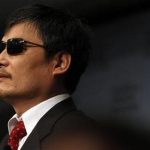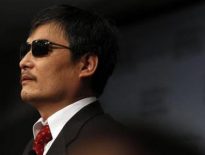(Reuters) – Last time Barack Obama wanted Angela Merkel’s help getting elected, she rebuffed a seemingly modest request from the junior senator from Illinois to hold a presidential campaign rally at Berlin’s iconic Brandenburg Gate.

Four years on, and the favor the president is asking of the chancellor could hardly be bigger: get thriving Germany to spend Europe out of a slump that is dragging down the global economy and could well sink Obama’s chances of re-election in November.
A year and a day after he awarded Merkel America’s highest civil honor, a seeming token of his high expectations for her cooperation, Obama on Friday again told European leaders they had an “urgent need to act” to resolve a debt crisis that has pitted a buoyant Germany against EU neighbors facing recession.
But Merkel, aware that appearing to bail out spendthrift foreigners can sink her conservatives’ own re-election hopes, shows little sign of being more helpful than when she sniffed that Obama’s plan for a 2008 campaign stop in Berlin was “odd”.
So can the man who nonetheless charmed 200,000 other Germans that day, echoing Berlin’s favorite American John F. Kennedy in a speech given in a city park, now persuade Merkel to heed pleas from her European Union peers for a little more fiscal stimulus?
For the answer, policymakers on both sides of the Atlantic are trying to learn the body language, tune in to the “mood music” of Obama and Merkel’s exchanges and decode the cryptic diplomatic signals between Bundeskanzlerin and White House.
One conclusion sources close to both leaders agree on is that, while the relationship lacks the warmth of Merkel’s with George W. Bush (Obama’s predecessor is still a YouTube hit with him massaging the German leader’s neck), the pair have plenty in common, not least a competitive streak and a somewhat chilly, calculating manner that should not be confused with antipathy.
SIMILAR CHARACTERS
“He and Merkel are very similar characters to be honest,” one German official said of Obama. “They both need to prove to each other who knows more about any given subject.
“But they have a high regard for each other.”
Obama aides tend to agree, saying he values Merkel’s “directness”, a German trait some of her European diplomatic counterparts find can verge on the rude, and that the White House understands the domestic electoral constraints on her.
The two are both in their way outsiders – the first black U.S. president and Germany’s first woman leader, the one-term senator and the scientist from the communist east.
Aides also say they share an intellectual wariness of the politics of personality, however much they may have played on their uncommon backgrounds for electoral benefit in the past.
Yet as Merkel digs in to defend Germans’ reluctance to spend their way out of Europe’s troubles, and less than five months until America votes, her four years of familiarity with Obama – a longer relationship than most among today’s leaders – and an ability to work together at speed, could be crucial for two leaders who have both been criticized for taking too long to act.
Conceding that Merkel’s team are conscious of intense attention from Washington, one German official familiar with recent exchanges said: “Pressure on Germany is very high.”
Yet a laconic, monosyllabic exchange at the start of last month’s Camp David G8 summit spoke of that no-nonsense spirit in private: Obama greeted the chancellor with just, “Angela.”
Merkel replied: “Mr. President.”
“How have you been?” Obama inquired.
She simply shrugged.
Obama: “Well, you have a few things on your mind.”
One White House official described the wider Merkel-Obama dialogue as pragmatic and efficient: “When they talk, they can pick up where they left off. They also will report back to each other about other relevant meetings or conversations.
“They’re both pragmatists. They get right down to business when they talk and get into detail about trying to solve various problems.”
PAST FRICTION
That means, insiders say, that past frictions – from the unusually public snub over Obama’s Berlin campaign stop to Merkel’s rejection of military action in Libya last year – count for little, or at least less than for more emotional characters.
What matters, both sides say, is an ever more interdependent global economy that can determine national elections worldwide.
“The one startling new facet of the transatlantic relationship is a very deep economic and financial integration,” said Constanze Stelzenmueller, who runs the Berlin office of the German Marshall Fund of the United States, a body whose founders commemorated U.S. aid to Europe after World War Two and which works to promote understanding between the two continents.
“Volatility and contagion risks go both ways. That has not just fiscal and financial implications but political, diplomatic and security consequences. That is the reason for the nervousness of the Obama campaign. They are realizing that what happens in Europe has a major impact on the U.S. economy.”
Merkel, 57, knows that German voters will not reward her Christian Democrats in a parliamentary election due by September 2013 if, to save euro zone partners like Greece or Spain, she “wastes” their money or exposes their savings to inflation – a historic national dread that dates back to the rise of Hitler.
But she is under intense pressure to ease back on demands that other governments make cutting deficits a priority, a view critics say risks creating an austerity driven downward spiral that would hurt Germany’s export-led economy as hard as any.
She is also resisting other measures, some modeled on those that helped pull the United States out of crisis, such as committing more state funds to guarantees for European banks and sovereign borrowers. She fears that may reward irresponsibility.
With 55 percent of U.S. foreign direct investment going into Europe and European sales of America’s big S&P 500 companies totaling $666 billion in 2010, Obama’s interest is clear.
“Europe remains the greatest risk to the U.S. recovery as well as to the global economic outlook. Our economic stake in Europe is huge,” U.S. Treasury Undersecretary Lael Brainard said in April before she toured Europe to discuss the crisis.
Some transatlantic divergence, compared to the Cold War when West Germany could be counted on to march in step with a United States that was protecting it from communism, is down to a more self-assertive German diplomacy seen since social democrat Gerhard Schroeder ousted Merkel’s mentor Helmut Kohl in 1998.
Republican exasperation with Schroeder, who shocked old allies by deriding the U.S. invasion of Iraq, translated into a particularly warm welcome for his nemesis Merkel at the White House – and, explained, aides said, the jocular “back rub” for a surprised chancellor caught on camera at a summit in 2006.
OBAMA RESERVE
“One can’t say it too loud, especially in Germany, but Merkel had a very good relationship with George Bush,” one German official told Reuters privately. “The relationship with Obama is different. He is much more reserved than Bush was.”
When Obama, 50, took office, six months after his chilly welcome on the campaign trail in Berlin, German officials recall months of frost, when calls from Washington slowed down and Merkel was received in Washington with less than full ceremony.
However, Germany’s strong bounce back from the 2008 global financial crunch provided sweet vindication for Merkel and, officials in Berlin believe, boosted respect for her in a White House which was struggling to get a grip on its own troubles.
Last year, on June 7, 2011, saw a high point in the relationship, when Obama toasted Merkel at a state dinner at the White House and bestowed on her the Medal of Freedom. Some saw that a little like the Nobel Peace Prize awarded to Obama when still in his first year in the job – less a reward for past achievement than a mark of great things now anticipated.
“This was a clear message to Merkel that U.S. expectations of her are high,” said Henning Riecke at the German Council on Foreign Relations in Berlin. “Washington has made clear time and time again that they want more from Germany.”
ATTENTION TURNING
It may be a sign that the White House senses that flattery is failing to win over Merkel that officials there now say Obama is paying more heed to other European leaders, many of whom, like new French President Francois Hollande and the Italian and Spanish prime ministers, Mario Monti and Mariano Rajoy, share the view that governments must loosen their belts.
At the Group of Eight summit, where aides made sure to tell reporters Obama had spent a full 45 minutes closeted with Merkel, he also made a very public display of giving attention to Hollande during a group photo shoot, while seeming to ignore the German leader who was standing to his other side.
Heather Conley, an expert on Europe at the Center for Strategic and International Studies in Washington, said the German-American body language at Camp David suggested the relationship was entering a “cool period”.
“As we’ve seen the crisis deepen and the president’s frustration grow that Europe cannot get ahead of this crisis, that it cannot resolve it, it just keeps coming back with a greater vengeance,” Conley said. “The president is really going to have to roll up his sleeves in my view and be more involved with European leaders to try to bring about some results.”
Unlike perhaps the up-from-nowhere Democratic candidate that he was back in 2008, Obama has plenty of great-power leverage to bring to bear on Europe’s leaders. But though he won’t be offering any back rubs, he will need all his powers of persuasion to win pre-election favors from Angela Merkel.
(Additional reporting by Stella Dawson in Washington and Andreas Rinke in Berlin; Writing by Alastair Macdonald)





